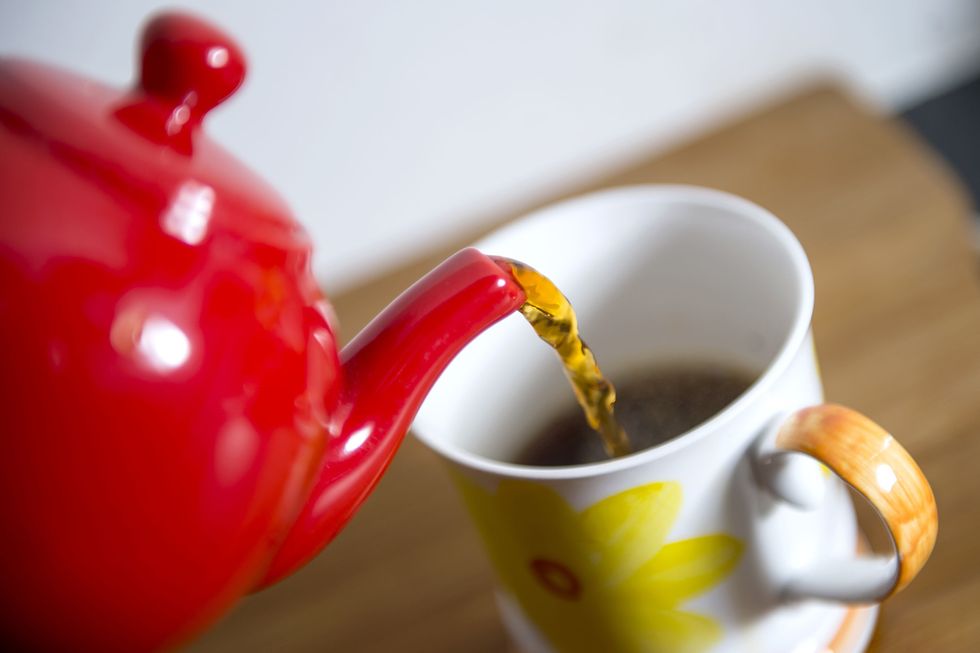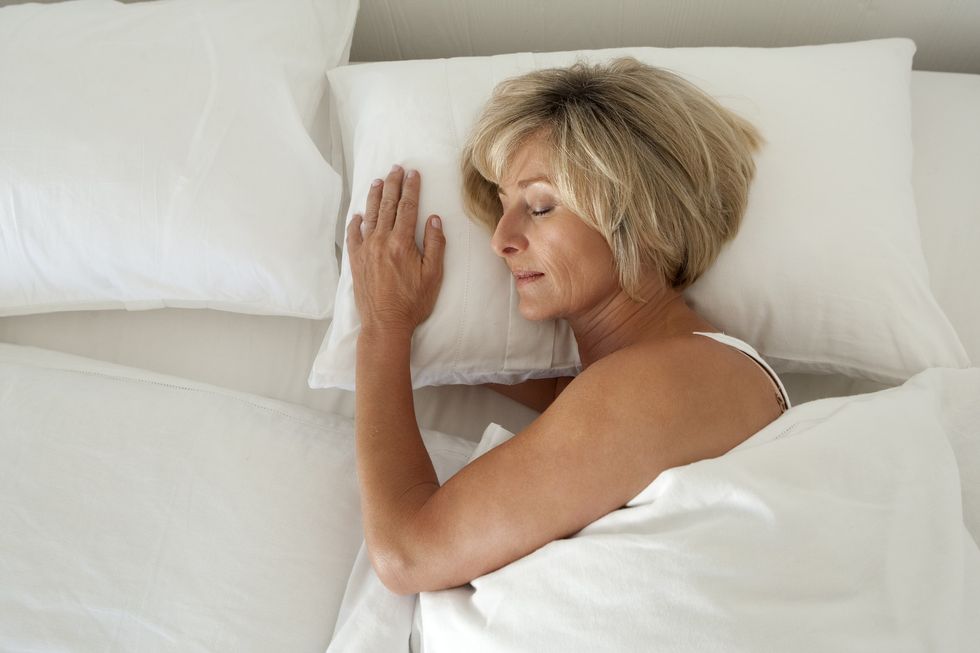Leslie Kenny shares methods to enhance sleep quality
GB NEWS
Drinking certain teas before bed can help you fall asleep more easily, an expert explained
Don't Miss
Most Read
Trending on GB News
Many Britons turn to a cuppa before bed, but does tea actually help you drift off? According to a sleep expert, the type of tea you choose matters significantly.
Whether you should be drinking tea before bed depends on which type of tea you are sipping on.
The timing is equally important. Martin Seeley of MattressNextDay advised drinking tea about an hour before bedtime rather than immediately before sleeping.
This allows time to "flush any excess liquid out of your system" and avoid night-time toilet trips. Herbal teas offer the best sleep benefits, with lavender being particularly effective.

Some types of tea are better than others if drinking before bed
PAMartin said: "Studies have shown that, especially for older adults, lavender tea can effectively reduce symptoms of anxiety and depression, which directly relate to insomnia."
The chemicals linalyl acetate and linalool in lavender create a sedative effect that works quickly.
Chamomile tea is also a great option and contains apigenin, a natural substance that creates a mild sedative effect by binding to brain receptors.
The pro said: "Chamomile also has anti-inflammatory properties, helping to minimise the pain felt from arthritis, stomach cramps or other painful conditions."
Valerian tea offers powerful relaxation benefits through its impact on brain chemistry.
Martin said: "GABA is a chemical in the brain that regulates your nerve cells and promotes feelings of calmness. Valerian is thought to increase the levels of GABA in your brain, which reduces anxiety and helps you relax before bed."
Despite its unpleasant smell, valerian contains sleep-inducing antioxidants and is often mixed with other teas. Martin noted that valerian has additional benefits: "Valerian can also help to ease menstrual pain and PMS symptoms."
Rooibos tea, also known as red bush tea, offers unique benefits for sleep quality. The sleep expert said: "While it doesn't have any vitamin or nutritional properties, it is packed full of powerful antioxidants that aid both your health and sleep quality."
The caffeine-free tea contains magnesium, which supports the parasympathetic nervous system - responsible for relaxation.
Research shows rooibos can improve cholesterol levels, reducing heart disease risk. The expert explained: "High cholesterol can have a negative impact on your sleep, potentially causing sleep apnea."
LATEST DEVELOPMENTS

What you do throughout the day impacts
GETTY
Peppermint tea offers natural relief for conditions that might disrupt sleep. Martin added: "With muscle relaxing properties, peppermint tea is an ideal choice of drink before bed. Naturally caffeine-free, it can help you relax and unwind before bed."
The menthol in peppermint increases blood flow and provides cooling sensations that can relieve tension headaches. It's particularly helpful for those suffering from colds or allergies.
He said: "Peppermint tea can also help to unblock clogged sinuses, reducing symptoms of the common cold and allergies."
Lemon balm tea stands out for its mood-enhancing properties that support better sleep, as it is caffeine-free with "therapeutic properties". Research has shown impressive results, with the tea reducing anxiety and insomnia in 95 per cent of people studied. Another study compared it to antidepressants, finding that participants reported improved quality of life after drinking lemon balm tea.
Like valerian, it increases GABA levels in the brain, which Martin says "regulates your mood and reduces feelings of stress, anxiety or even overexcitement."








